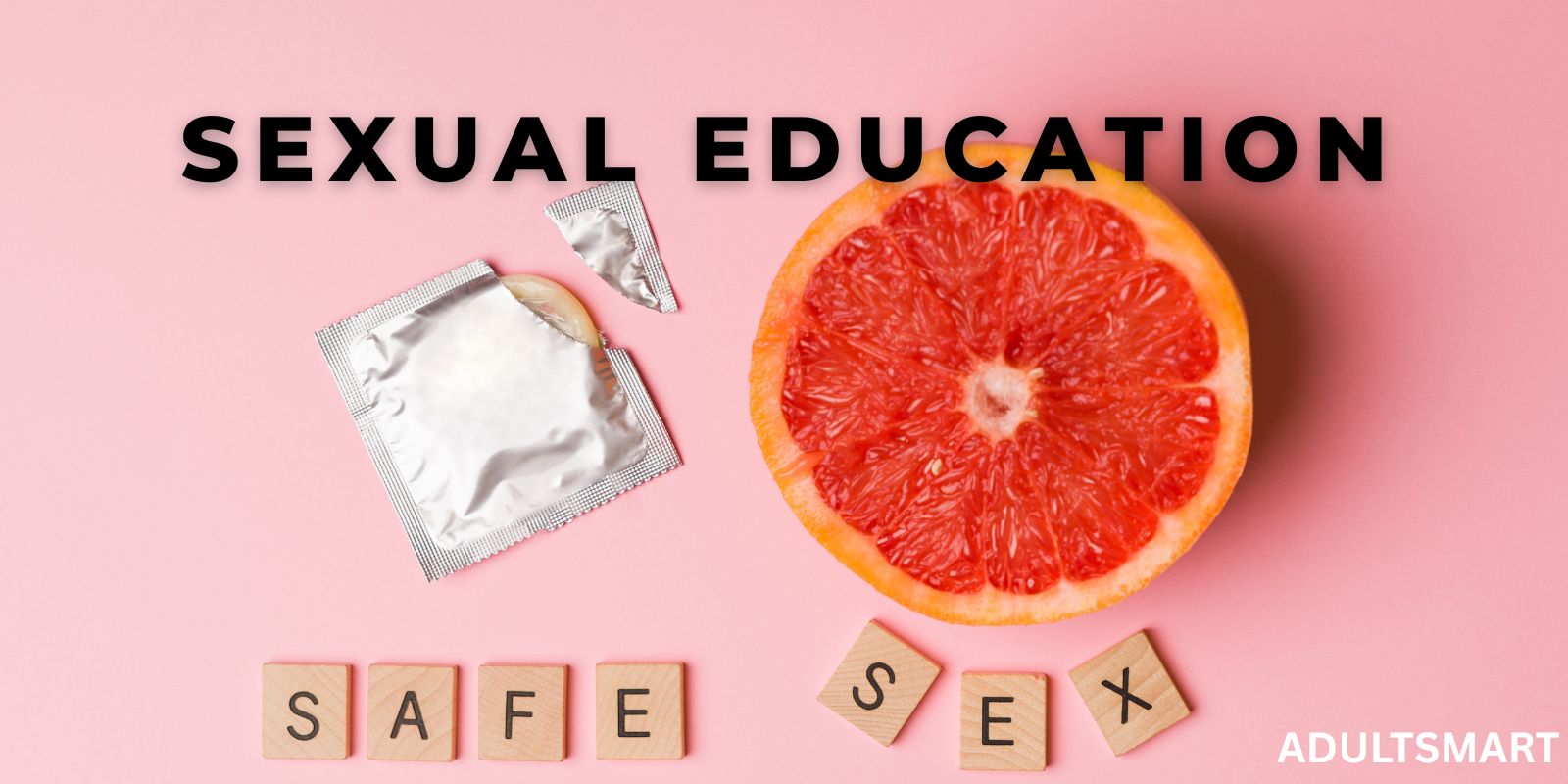What Is Sexual Education?
Sexual education teaches more than anatomy — it’s a foundation for understanding safety, pleasure, and respect. Through age-appropriate lessons, it covers topics like consent, body image, gender diversity, contraception, and emotional awareness. Unlike outdated or fear-based programs, comprehensive education focuses on knowledge and choice. The goal is to help people understand both their rights and their responsibilities, fostering healthy intimacy rather than shame. When sexuality is treated as natural, learning becomes empowering instead of awkward.
According to Wikipedia’s overview of sex education, studies show that students who receive fact-based instruction are more likely to delay sexual activity, use protection, and form respectful relationships. Good sexual education creates confidence and empathy, giving people tools to communicate clearly and set healthy boundaries. It’s not just for teenagers — adults benefit too, as understanding changes over time. Whether through schools, workshops, or open conversations, sexual education builds lifelong awareness that supports both physical health and emotional connection.
Table of Contents – Sexual Education
- Understanding Sexual Education
- Why It Matters Across Ages
- Skills, Consent, and Communication
- Bringing It Into Daily Life
- Key Takeaways
- FAQ
Understanding Sexual Education
Comprehensive sexual education covers anatomy, contraception, consent, healthy relationships, sexual orientation, and online safety. It aims to replace myths and fear with accurate information and empathy. Traditional programs focused mainly on biology or abstinence, but modern frameworks highlight emotional and social skills. The goal is to create open dialogue, not silence. This approach helps young people develop confidence and understand that sexuality is part of overall wellbeing. When handled respectfully, it becomes a lifelong tool for mental and physical health.
The True.org.au guide to comprehensive sexuality education explains that programs combining factual information with real-world discussion are far more effective. They teach people how to express needs, recognise manipulation, and seek help when needed. Beyond safety, sexual education builds understanding between genders and across cultures. It equips individuals with language for feelings and identity, promoting empathy and acceptance. When societies encourage learning instead of shame, they raise generations that value communication, consent, and care.
Why It Matters Across Ages
Sexual education is valuable at every stage of life. For young people, it helps build confidence and sets clear expectations about consent and respect. For adults, it refreshes understanding as relationships, bodies, and desires evolve. Older adults can benefit from learning how hormonal changes, medication, and emotional shifts affect intimacy. Each age group faces unique challenges, and ongoing education ensures that sexuality remains a healthy and natural part of life. It’s never too early — or too late — to learn how to communicate about pleasure and safety.
As our bodies change, so does the way we experience sex. The article Why Sex Feels Different As You Age explains how physical and emotional needs shift over time. Understanding these changes helps people adapt without shame. Comprehensive programs give adults the language and confidence to talk about needs, preferences, and boundaries with honesty. By normalising sexual education across generations, we create a culture where everyone — from teens to seniors — feels informed, respected, and connected.
Skills, Consent, and Communication
True sexual education goes beyond anatomy — it teaches emotional intelligence and respect. Knowing how to ask, listen, and respond matters as much as understanding physical safety. The True.org.au resource on sexuality education highlights communication as the heart of consent. Learning to read cues, check in, and express limits clearly turns sex into a mutual experience instead of a guessing game. Practicing these skills early helps prevent misunderstandings and builds lasting trust in relationships.
*In my own yoga practice, I’ve seen how simple breathwork can calm nerves during difficult conversations — including those about intimacy or consent. When we breathe slowly, we speak more clearly and listen more openly.* The same principle applies to sexual education: staying grounded helps people handle sensitive moments with patience. Here are a few quick ways to strengthen these skills through mindful communication and education:
- Use simple check-ins like “Does this feel good for you?” or “Are you comfortable with this?”
- Model healthy dialogue when discussing intimacy with partners or teens.
- Encourage curiosity — ask questions instead of assuming answers.
- Keep tone calm and open, especially when discussing difficult topics.
- Review guides like Talking About Sex With Teens for tips on clear, age-appropriate communication.
Communication and empathy are the foundation of intimacy. By teaching people how to talk openly and listen without judgement, sexual education transforms relationships from awkward to authentic.
Bringing It Into Daily Life
Sexual education works best when it’s practiced, not just discussed. Applying lessons about communication, consent, and body awareness turns theory into habit. Daily intimacy doesn’t have to be planned or perfect — it just needs to feel safe and mutual. A simple way to integrate learning is by building small check-ins with your partner. Ask questions, share thoughts, or experiment with moments of mindfulness before sex. These actions strengthen emotional and physical trust, making intimacy feel both spontaneous and intentional.
The article Benefits of Morning Sex highlights how consistent intimacy can boost mood, connection, and confidence. That idea fits perfectly with the principles of sexual education: intimacy thrives when communication and self-awareness are routine. Being open about pleasure, consent, and change removes anxiety and replaces it with curiosity. Over time, knowledge becomes instinct — you start making choices that feel aligned with your body, your values, and your partner’s comfort.

Key Takeaways
- Sexual education builds knowledge, empathy, and confidence around consent, pleasure, and communication.
- It’s relevant for every age group, from teens learning boundaries to adults navigating body changes.
- Practical skills like asking questions and checking in keep intimacy safe and mutually satisfying.
- Healthy sexuality supports emotional wellbeing and strengthens long-term relationships.
- When applied daily, sexual education becomes a tool for self-awareness, comfort, and growth.
FAQ
1. What is sexual education?
Sexual education is structured learning about relationships, consent, health, and pleasure. It helps people understand their bodies, emotions, and rights while promoting respect and safety.
2. What topics should be included?
Comprehensive programs cover anatomy, contraception, consent, pleasure, communication, diversity, and digital safety. The focus is on confidence, not fear.
3. How can parents talk to teens about sex?
Start early, use honest language, and stay calm. Focus on consent, respect, and trust. Resources like Talking About Sex With Teens offer guidance.
4. Does education encourage earlier sex?
No. Research shows comprehensive education delays sexual activity and leads to safer, healthier relationships by replacing secrecy with understanding.
5. How can adults improve their sexual education?
Adults can revisit topics like consent, communication, and pleasure through workshops, therapy, or open conversations with partners. Learning never stops at any age.
Cassandra Smith is a yoga instructor sharing tips on wellness, mental health, and intimacy—focusing on self-awareness, balance, and daily mind-body care.


Leave a Reply